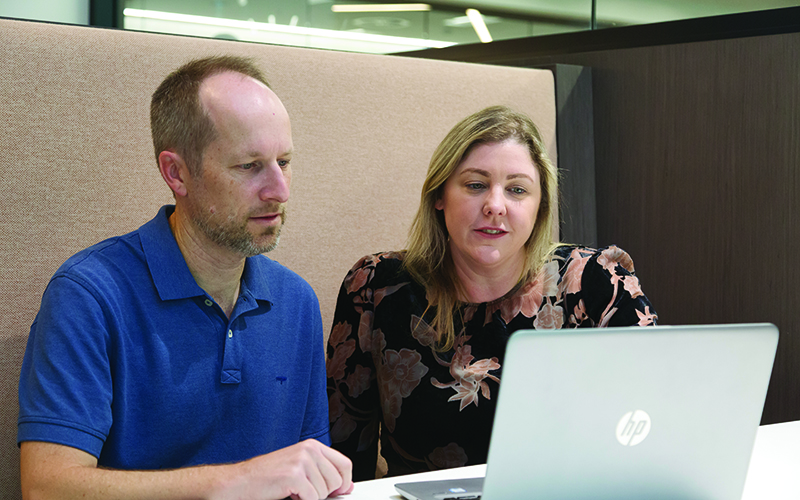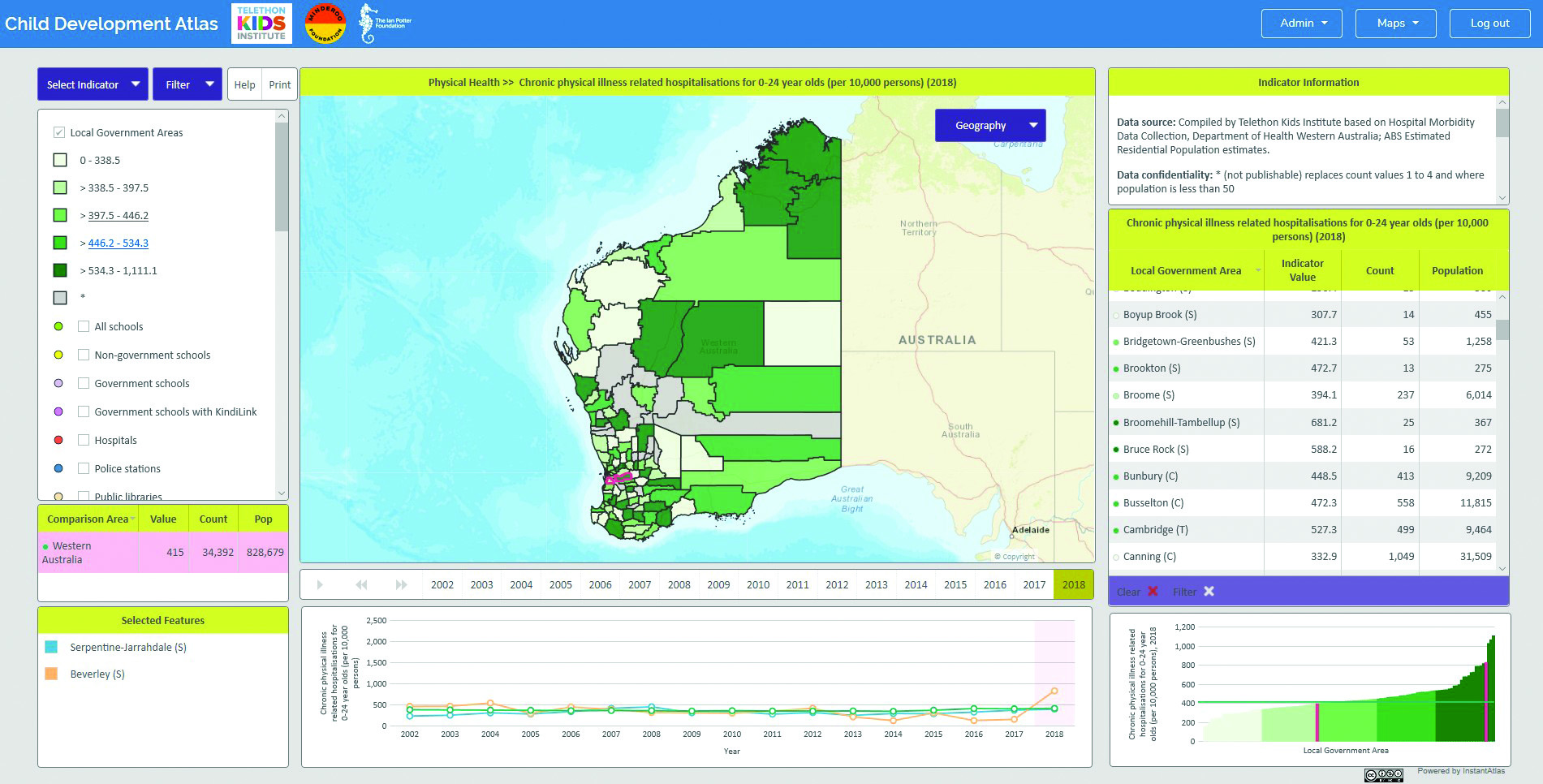
Scott Sims and Dr Rebecca Glauert
An interactive Child Development Atlas created by The Kids researchers is giving policymakers, planners and services easy access to important data about the health and wellbeing of WA families – helping them to better understand and plan for their communities’ needs.
Having a sense of place is a fundamental ingredient for human wellbeing and helping us to feel we belong. But it’s also critical for anyone who wants to tackle the ‘wicked’ health and social problems that stop kids and families from thriving and place a strain on government and other services.
For nearly a decade Dr Rebecca Glauert and her team dreamed about creating an atlas that pulled together and visualised available data on child health and development in a way that could help researchers, planners, policymakers and other organisations make better decisions about where to locate services and how to help children and families.

“We had been working closely with government partners for over 10 years, utilising their data to undertake research aimed at improving the health and wellbeing of children. Since we were already working with all these data, we thought let’s just make it available for everyone to improve policy and decision making that can help children and families more effectively.”
After trying for years to get funding, Associate Professor Glauert and team were eventually able to get work on the WA Child Development Atlas under way with the support of The Ian Potter Foundation and Minderoo, through CoLab – Collaborate for Kids.
Launched this year after three years of collaboration, negotiation and development, the Atlas already has more than 500 subscribers across the State, from government agencies and local government authorities to schools, community organisations and parenting groups.
Those who’ve explored the WA Child Development Atlas have raved about its value as a free community resource that will help them better identify priority areas, target services and plan strategically. The team is also fielding a constant stream of requests from others interested in learning about how they may be able to use the Atlas.
Researcher Scott Sims said the tool was generating particular interest among local governments, which are now required to produce community health profiles to aid their public health planning.

"We’ve already created community profile infographics – data snapshots – for quite a lot of communities.”
Jay Weatherill, CEO of Minderoo Foundation’s Thrive by Five initiative, said the Child Development Atlas was key to improving developmental outcomes for children.
“It will assist communities develop and implement local plans which are critical to improving outcomes for children and young people,” Mr Weatherill said. “I also believe it will be instrumental in getting government and non-government agencies to work through communities to implement cross-agency plans to improve outcomes for kids.
“Currently in many communities we have lots of services but little planning.”
Mr Charles Goode AC, Chairman of The Ian Potter Foundation, said the Child Development Atlas was the first resource of its kind in Australia dedicated to children’s development.
“We see strong potential in scaling this invaluable resource nationally,” Mr Goode said. The team plans to do just that, recently receiving a grant to partner with more than 20 groups across the country to create an Australian National Child Health and Development Atlas.
The team recently received a grant to partner with more than 20 groups across the country to create an Australian National Child Health and Development Atlas.
“People are doing different things across the country in terms of visualisation of data on children and young people and geographically mapping it,” Associate Professor Glauert said.
“We want to bring the best bits of everything everyone’s doing together into one spot and create the best resource we can. It won’t be exactly the same as the Child Development Atlas but will serve a similar purpose.”
She said the Atlas had been a labour of love but it was gratifying to see it being taken up so enthusiastically. “It’s so exciting to see this tool we’ve dreamed about for so long being used in exactly the way we hoped. We’re so grateful for all the partners who have patiently supported us through this long process – it was nice to see that they understood and supported our vision.”
Associate Professor Glauert’s team has since joined the School of Population and Global Health at The University of Western Australia but will continue to lead the WA Child Development Atlas and develop the national project in collaboration with Professor Donna Cross and the Development and Education team at The Kids.
Find out more at childdevelopmentatlas.com.au

